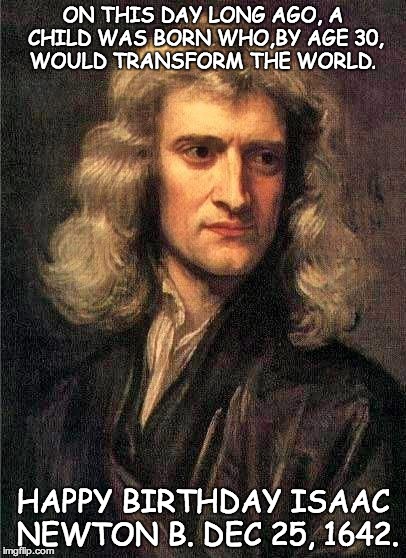
Originally shared by Victor H
Thanks Obama!💪👍

Originally shared by Victor H
Thanks Obama!💪👍
“But the truth is, it wasn’t the state, or the cold, or the media. The real problem underneath it all was a deep ambivalence about power. In fact, all of the things that made Occupy Wall Street brilliant had this paradox built into them, this politic of powerlessness woven deep inside, like a bad gene or a self-destruct mechanism.”
Originally shared by Jordan Peacock
Yotam Marom:
The meetings are closed, and we all feel kind of bad about it, although this is another thing we don’t talk about often. There isn’t much coherence to how we ended up here in the first place — one person invited a few over and the next invited a couple and so on, until the room was full. It was as arbitrary a time to stop inviting people as any, but this is how things often happen in movement moments. We justify the boundary by reminding ourselves that we are certainly not the only collection of people meeting like this — there are many affinity groups and other kinds of formations — and that we are here to plan and strategize, not to make decisions.
But we also know that there are a lot of movers and shakers in the room, and that this affords us a disproportionate ability to move things through the rest of Occupy. We know the age-old pitfalls of people making plans in closed off rooms, and it’s not lost on us that — while this space is also led by some of the most powerful women and folks of color in the movement — most of us are white, middle class, and male. If someone had asked any one of us directly, we’d likely have agreed that, collectively, we have quite a bit of power and aren’t being held accountable to it.
But for the most part, we keep that nagging feeling under wraps, so we can continue the work. There is a confidence we seem to share that we are filling a void, meeting a real need, putting everything we have on the line to keep momentum going. We seem to agree, even if quietly, that movements don’t exist without leadership, that the general assembly has been more performance art than decision-making forum since the first couple of weeks, that leaderlessness is a myth, that we need a place to have sensitive discussions hopefully out of reach of the surveillance state. And in truth we know our jobs aren’t glamorous by any stretch of the imagination; after all, a good deal of the efforts of the folks in the room are aimed at getting occupiers port-o-potties and stopping the incessant drumming.
[…]
Some of the folks in the group got frustrated, and pulled away. They accused the rest of us of being liberals (this was a curse-word), said we were co-opting the movement for the unions, claimed that even meeting like this was a violation of the principles of the movement. Those claims were false, but they were hard to argue with, because most of us were already feeling guilty for being in closed off rooms. So we shrunk. Sort of like when an over-zealous white “ally” trips over other white folks to call out an example of racism; the first to call it out sits back smugly, having taken the moral high ground and pointed a finger at the others, and then the rest clench their jaws and stare at the floor guiltily, hoping the storm passes over them.
We tried to stop the split. We slowed down. We spent time trying to figure out what the right thing to do was. We tried to be honest about how much of this had to do with differences in politics and how much of it was really just ego on all sides. Some of us tried to reach across the aisle, to mend broken relationships. But in the meantime, the folks who had taken the moral high ground had begun building a separate group. That split happened in October in that living room on the Lower East Side, perhaps in other circles in the movement around the same time; by November it was playing out in the movement more broadly, until in December there were distinctly different tendencies offering different directions to the movement as a whole. It would be overly simplistic to trace the overall conflict inside the belly of Occupy Wall Street to the dissolution of this one group or even to in-fighting more broadly, but at the same time, it was a significant factor. All movements develop mechanisms for leadership and coordination, whether formal or informal, and they suffer real setbacks when those systems collapse.
[…]
It wasn’t the state, or the cold, or the media. The real problem underneath it all was a deep ambivalence about power. In fact, all of the things that made Occupy Wall Street brilliant had this paradox built into them, this politic of powerlessness woven deep inside, like a bad gene or a self-destruct mechanism.
For example, the mantra of leaderlessness came from a genuine desire to avoid classic pitfalls into hierarchy, but it was, at the same time, a farce, and divorced from any sense of collective structure or care for group culture. It foreclosed on the possibility of holding emerging leaders accountable, created a situation in which real leaders (whether worthy or not) went to the shadows instead of the square, and made it impossible to really develop one another (how, really, could we train new leaders if there weren’t supposed to be any in the first place?). Similarly, the refusal to articulate demands was brilliant in opening radical possibilities and sparking the popular imagination, but it also meant we didn’t have a shared goal, meant the word winning wasn’t even part of the movement’s lexicon. In many ways, it was an expression of a fear of actually saying something and taking responsibility for it, and it encouraged the often-repeated delusion that we didn’t even want anything our enemy had to give, that Wall Street and the State didn’t have any power over us.
[…]
In those moments, when we refuse to engage in these fights because they feel childish and below the belt, we forget that the majority of people are standing in the middle, wondering what the hell is going on and looking for people they can trust. When those of us who are thinking about power and trying to grow the base don’t step up to that challenge, the folks in the middle assume that the people bringing in toxicity are the leadership, and they don’t want to have anything to do with it. They find no other voices providing leadership they can feel a part of. So they go home.
[…]
Our behaviors — even the self-sabotaging ones — are our bodies’ responses to threat. Our instincts are clumsy at times, and they often cut us off from our better options, but credit where credit is due: these instincts, at some points, probably saved our lives. Instead of hating those traits so much, we might be better off tipping our hat to them, thanking them for the safety they have provided us, and letting them know that we don’t need them anymore — that we want to practice something new instead.
[…]
The politics of powerlessness is a defense mechanism, meant to protect us from our worst fears. And as I’ve been learning, it never works to hate one’s defenses, to bang our heads against them, to bend them into submission. No, the way we change is by really getting curious about their source, and trying to address their root causes. Of course we’re afraid. Fear is a totally grounded response to what is happening around us. We need to sit with that. And we need to find new practices for dealing with our fears, because in the end, those hard truths are precisely the reason we need to do awaywith the politic of powerlessness.

Originally shared by John Poteet
It took me six tries to get this posted. Major historical event here.
I shouldn’t have to explain why.
OK, I ran into a cartography challenged individual who I respect greatly so here goes the rundown.
The little green circle is the North Pole, or as close as I can get on this map site.
It’s December 30th, 2015.
The temperature is above freezing. (0.1 C)
A few years ago I thought it was significant that it was raining instead of snowing at 86º North in June and it was. This is off the charts.
An arrow to the heart.
Originally shared by Jennifer Ouellette
The Winners from the 2015 National Geographic Photo Contest (13 Photos) http://twistedsifter.com/2015/12/national-geographic-photo-contest-2015-winners/ …
“These people described Mr. Sanders’ team as decidedly less emphatic in private discussions about having more primary debates than they have been in public, realizing that debates are not his strength.”
and
“I asked Senator Sanders” to do more, said Mr. O’Malley. “Senator Sanders didn’t want to do more debates either. He kind of liked where it is.”
Originally shared by ****
For those of you who are struggling with the Bernie campaign behavior this will help make sense of the behavior you see……
“I’ve come to believe that, in some ways, saying nice things about Hillary Clinton is a subversive act.”
I think I need some “Happy Newton Day” cards…

Originally shared by Jani Siekkinen
On this day long ago, a child was born who, by age 30, would transform the world.
Happy birthday Isaac Newton B. Dec 25,1642.
Originally shared by Matt Austern
Apparently people in at least some circles are worried about the possibility that Hilary Clinton might already have the Democratic nomination wrapped up despite Bernie Sanders’s popularity. I looked up the numbers and references to respond to a friend’s post, so as long as I’ve got all that stuff collected I may as well hoist it from comments. Summary: this idea has some basis in fact, but it’s more false than true.
The true part is that, of the 712 superdelegates (people who are delegates by virtue of holding an official position, and who aren’t required to vote for a specific candidate), 359 of them have said they support Clinton and only 8 have said they support Sanders, at least as of a month ago. The remainder haven’t endorsed any candidate. (http://www.npr.org/2015/11/13/455812702/clinton-has-45-to-1-superdelegate-advantage-over-sanders)
The false parts: (a) The superdelegates are a small fraction of the total 4764 delegates expected at the Democratic convention. (https://ballotpedia.org/Democratic_National_Convention,_2016#Delegation_selection) This gives Clinton an edge over Sanders and O’Malley, but by no means a lock. (b) Superdelegates can and do change their mind depending on who wins primaries. Clinton started with an edge in superdelegates in 2008 too, after all. If in fact Sanders wins the primary votes then I expect he’ll get the nomination. (c) A phrase like “despite Sanders’s popularity” is misleading at best, by suggesting that Sanders is the popular choice. In fact, though, an aggregate of the latest polls (http://elections.huffingtonpost.com/pollster/2016-national-democratic-primary) shows Clinton with a considerable lead over Sanders and O’Malley combined. Clinton’s lead over Sanders is about as large as Sanders’s lead over O’Malley. It’s a long time before any votes get cast, so things might well change, but at this point it looks like Clinton will probably get the nomination the old fashioned way, by getting the most votes.
It really must be watched…
Originally shared by Woozle Hypertwin
I couldn’t resist the opportunity to do this. The weather was just too right. Sorry for the shaky camera and shaky voice. >.>
I feel like I should go back and add piano or something, but then I’d still be working on this in January. Maybe I’ll do that for next year.
— Lyrics —
I’m looking at a wet Christmas
Not like the ones we used to know
When the globe is warming
There’ll be no snow forming
Just a winter mix to make the traffic slow
I’m looking at a wet Christmas
Not like the ones we used to know
Now the climate’s changing
It’s re-arranging
The jet stream, and what happens down below
I’m looking at a wet Christmas
Without a flake of snow in sight
May you enjoy December
As you remember
When all your Christmases were white.